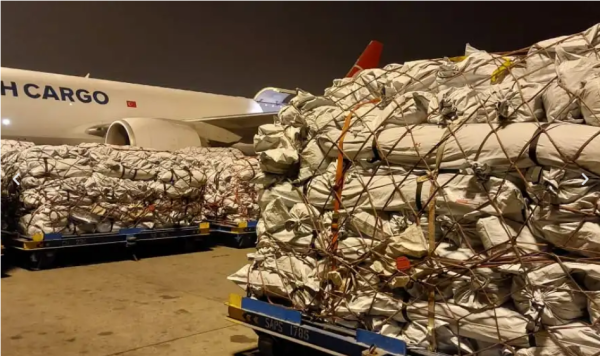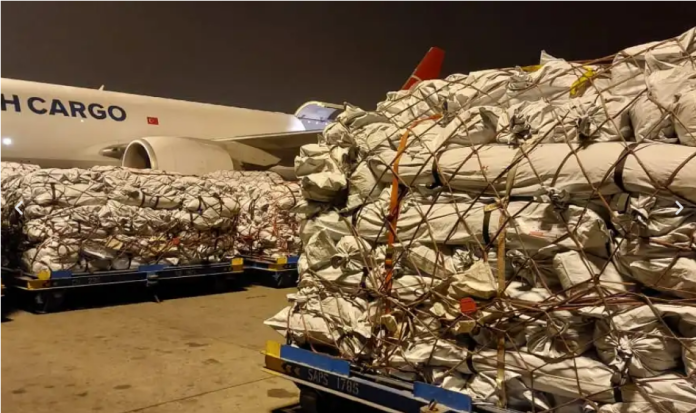SINGAPORE 28 April 2023: The International Air Transport Association (IATA) reminded stakeholders of the critical role that commercial aviation plays in times of natural disasters and humanitarian crises.
“When crises strike, aviation is there. Connectivity is essential to get aid and first responders to where they are needed. The response to the recent earthquake in Southern Türkiye and Syria was no exception,” said IATA’s Director General Willie Walsh, who addressed the airline industry in Istanbul during the IATA World Cargo Symposium held earlier this week.

“Airlines helped save lives in the immediate aftermath of the earthquake. And airlines continue to help accelerate the recovery with vital cargo shipments,”
While there is no comprehensive tabulation of aviation’s support, a limited review of 29 key carriers serving the Türkiye market reveals an impressive relief effort conducted through Airlink.
These airlines delivered over 3,500 tons of aid from over 90 countries. They operated over 350 relief and repatriation flights to affected areas and provided transport for over 130,000 responders worldwide.
Critical supplies included winter jackets, blankets, toilets, hygiene articles, food, fire guards’ equipment, power generators, tents, water distribution ramps, flashlights, sleeping bags, and medical supplies.
Airlink provides an excellent example of how the aviation sector responds to crises. It is a non-profit organisation coordinating donated airline resources and NGO needs during humanitarian disasters. Working with its NGO and airline partners, Airlink has coordinated the transport of 1,000 tons of aid supplies to the affected area, with an additional pipeline of 300 tons.
The resilience of cities and infrastructure are key components of the UN’s Sustainable Development Goals (SGD9 and 11, respectively). This is tested in times of crisis when air transport’s role is both an essential infrastructure component in its own right and a vital lifeline for communities.
“Every day, airlines make an enormous positive contribution to humanity by connecting people, cultures, businesses and economies. This fosters economic growth and social development. When disaster strikes, these links become even more critical. Everyone in aviation can be proud of the essential supplies, critical talent and hope that planes carry to disaster-affected areas. With that in mind, we encourage all our stakeholders to join us in ensuring that aviation can fulfil this role by becoming ever more safe, secure, reliable and sustainable,” said Walsh.
“Airlines have shown exceptional compassion and solidarity, delivering vital supplies and aid to affected communities worldwide. During crises, we bring hope, relief, and aid, striving to rebuild lives together. I am proud to be part of an industry that makes such a difference,” he concluded.
(Source: IATA)






